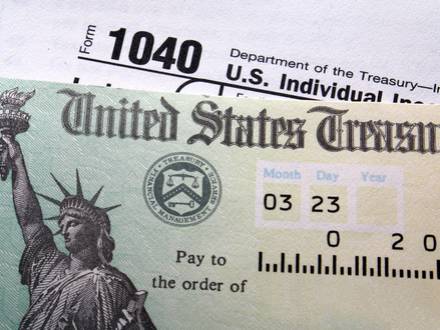Paper Checks Will No Longer Be Available for IRS Tax Refunds
 In the 21st century, financial transactions are often conducted digitally. Direct deposits have eliminated the need for paper checks in many cases, although there are still some situations where they may be used. Due to recent policy changes, the IRS will be eliminating the use of paper checks. While this is meant to increase efficiency and cut down on costs, it may put some taxpayers in a difficult position. For example, foreign taxpayers who do not have accounts with financial institutions in the United States may encounter problems with receiving refunds.
In the 21st century, financial transactions are often conducted digitally. Direct deposits have eliminated the need for paper checks in many cases, although there are still some situations where they may be used. Due to recent policy changes, the IRS will be eliminating the use of paper checks. While this is meant to increase efficiency and cut down on costs, it may put some taxpayers in a difficult position. For example, foreign taxpayers who do not have accounts with financial institutions in the United States may encounter problems with receiving refunds.
People who are unsure about how they may be affected by changes to tax laws or IRS policies can consult with an attorney to determine their options. By addressing these issues, taxpayers can make sure they will be able to receive tax refunds correctly.
New Policies Regarding Tax Refunds
The IRS’s move to phase out the use of paper checks is in response to an executive order from President Donald Trump. After September 30, 2025, the IRS will no longer issue checks, and it will instead provide refunds through direct deposits to taxpayers’ bank accounts. In most cases, refunds can only be deposited into bank accounts in the United States in which the name of the account holder is the exact legal name of the taxpayer. The IRS will allow for certain exceptions, and prepaid debit cards may be available for certain taxpayers.
Some people or entities that had previously relied on paper checks will need to determine what steps to take to ensure that they can receive refunds. Issues that taxpayers may need to address include:
-
FIRPTA Refunds: Under the Foreign Investment in Real Property Tax Act, foreign persons who sell real estate property in the United States are subject to automatic income tax withholding. In most cases, 15% of the amount realized through these sales must be withheld. When the actual tax liability that applies for these sales is less than the amount that was withheld, a person will be eligible for a refund. While these refunds had been issued through paper checks in the past, a foreign person or entity will now need to have a United States bank account where a refund will be deposited.
-
Non-Resident Aliens With Investment Income: When foreign persons who do not reside in the United States receive income from investments in the United States, income taxes are typically withheld from the income they earn. In most cases, a tax rate of 30% will apply, but a person may qualify for a reduced tax rate depending on the tax treaties between the United States and their home country. In these cases, a person may receive a refund, which will now only be available through a direct deposit to a bank account in the United States. To claim a refund, a taxpayer must file Form 1040-NR, and they can file Form 8888 to have the refund directly deposited into a bank account.
-
Business Tax Refunds for Foreign Corporations: When doing business in the United States, foreign corporations may need to address overpayments of payroll taxes or corporate income taxes. They may receive refunds for employment taxes, corporate taxes, or business credits, and they will not be required to receive these refunds through deposits to bank accounts in the United States. A foreign corporation can claim a refund by filing Form 1120-F, and it may need to register for the Electronic Federal Tax Payment System (EFTPS) and take other steps to ensure that it can receive electronic payments.
Contact Our San Jose Tax Law Attorney
At John D. Teter Law Offices, we can help our clients ensure that they will be able to address changes in IRS policies. For taxpayers who previously relied on paper refund checks from the IRS, we can provide guidance on the steps to take to ensure that electronic refunds can be received correctly. We can also help foreign corporations, non-resident aliens, foreign persons who are selling property in the United States, and other taxpayers understand what steps to take to minimize their tax liability. Contact our San Jose, CA tax lawyer by calling 408-866-1810 to schedule a consultation.









